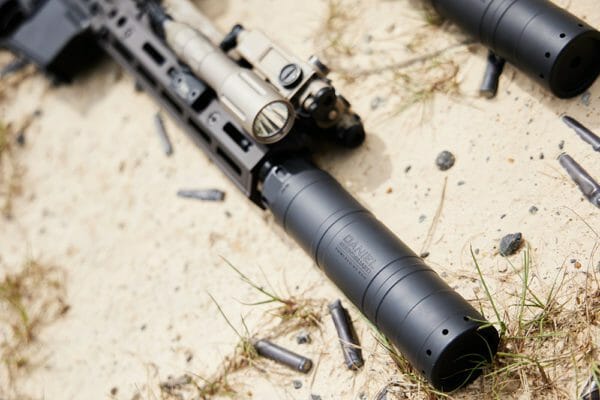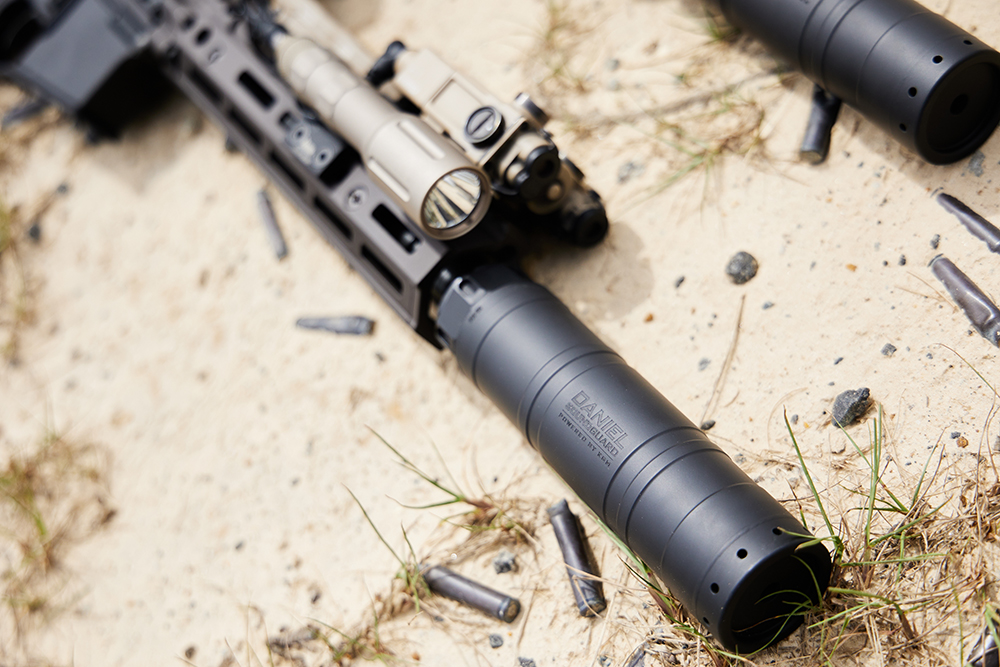
U.S.A. — On July 18, Judge Mark T. Pittman of the Northern District of Texas, Fort Worth Division, ruled the plaintiffs in the case of Ken Paxton v. Gary M. Restaino (Previously Dettleback, the case name changes with the name of the head of the ATF) have no standing to pursue the lawsuit, because they have not suffered concrete harm. The case is dismissed without prejudice, which means it can be refiled with new evidence. The case is the result of the passage of Texas bill HB 957. The bill required the Attorney General of Texas to file a lawsuit challenging the constitutionality of the federal law governing the possession and regulation of silencers. On September 1, 2021, HB 957 became law.
The lawsuit was filed by Ken Paxton, Attorney General of the State of Texas, on February 24, 2022, as required by the passage of Texas Bill HB 957. The arguments in the lawsuit were bolstered by the Bruen decision published on June 22, 2022. Having a federal law declared unconstitutional is a difficult thing to do. It was easier before ideological Progressives took over the government, starting with President Theodore Roosevelt. The government was cut back a good bit with President Calvin Coolidge, ramped up with President Woodrow Wilson, and pushed into overdrive with the Franklin Delano Roosevelt administration and World War II. Since the Progressive revolution in the Supreme Court in the 1930s, the Court has been far less willing to overturn federal laws. The court has assumed a new doctrine: laws are presumed to be constitutional if passed by the legislature.
Entities challenging laws must have “standing”. Standing means they have an actual “concrete injury to a legally protected interest.” But standing has become a way for judges to pick and choose the cases they want to hear. Judges have granted standing to people in environmental cases because they have an “interest” in future appreciation of nature trails, for example. It is hard to have standing against federal criminal law without being charged with the crime in question. However, denial of Constitutional rights, even for a moment, is considered a concrete injury. Judge Pittman wrote, from the opinion:
The guidance from our high court on standing continues to be “a morass of imprecision.”1N.H. Rt. to Life Pol. Action Comm. v. Gardner, 99 F.3d 8, 12 (1st Cir. 1996). At best, standing is now “unsettled in nature [and] beset with difficulties.” Thompson v. Cnty. of Franklin, 15 F.3d 245, 247 (2nd Cir. 1994). But luckily for this Court, though no one can pinpoint the height of the doctrine’s “amorphous” bar, it is easy to determine that these Plaintiffs have fallen short of it.
Judge Pittman notices the environmental case Paxton quoted as a way to claim Texas has standing in this instance, but Pittman does not accept the argument. From the opinion:
Texas does not seek to protect any interest remotely akin to the “earth and air within its domain.” Nor does Texas allege that it has any concrete or imminent injury specific to the state or its administration. See Biden, et al. v. Nebraska, et al., 143 S.Ct. 2355, 2358 (2023) (holding that Missouri established standing by showing that it “suffered . . . a concrete injury to a legally protected interest, like property or money”). By its own words, Texas seeks to protect the ability of its individual residents to make firearm silencers at home.
Second Amendment supporters would argue that fundamental constitutional rights are more important than regulating the emissions of cars or factories. Judge Pittman disagrees. No one, at this point, has ruled that silencers are protected arms, although they appear to meet all the criteria given in the Supreme Court decisions of Heller, McDonald, Caetano and Bruen. Judge Pittman removes himself from the case by ruling that the plaintiffs do not have standing, without prejudice. Judge Pittman wrote an opinion favorable to the Second Amendment in a previous case. Judge Mark T. Pittman struck down the Texas law prohibiting 18-20-year-olds from carrying a handgun in public.
The case is likely to be appealed. It is not certain. Republicans who see AG Ken Paxton as a rival, and their Democratic party allies, have impeached him. Paxton has been a target of repeated lawfare actions for several years. With the impeachment process going on, Paxton no longer is in charge of the Attorney General office. His replacement may not think the silencer case is important. We will find out in a couple of months.
The insane regulation of silencers/gun mufflers/suppressors is a puzzle to firearm users all over the world. Several countries have had virtually no regulation of the devices. It is difficult to understand why the heavy regulation in the United States was put into effect. Silencers are seldom used in crime. They have significant benefits to protect hearing, reduce sound pollution, aid in training and are more and more being used in the military. They have obvious advantages for defense of the home and for hunting. Those who wish the population disarmed likely want to keep silencers heavily regulated precisely because of the many advantages of the devices.
About Dean Weingarten:
Dean Weingarten has been a peace officer, a military officer, was on the University of Wisconsin Pistol Team for four years, and was first certified to teach firearms safety in 1973. He taught the Arizona concealed carry course for fifteen years until the goal of Constitutional Carry was attained. He has degrees in meteorology and mining engineering, and retired from the Department of Defense after a 30 year career in Army Research, Development, Testing, and Evaluation.







Seems as though, if any of the plaintiffs applied for tax stamp before beginning manufacturing process – they would gain standing. Their civil right is being (or has been by time court hears case) delayed – and they were charged $200 for privilege of exercising a right. Thus their right was delayed and they suffered direct monetary cost due to the law. By courts on words they would have crossed the bar to having standing. Understandable that the judge wants to avoid this case. He can break his oath to rule for ATF or he could kiss off career advancement… Read more »
The judge is a coward and does not want to rule against his masters.
So for standing, you must first make a silencer under the protection of the Constitution and state law, then have federal agents deprive you and the state of your rights and put you in prison. Then and only then can you sue the federal government and start the years-long process for a chance to prove they never had the authority to put you in prison in the first place.
Brilliant.
“There should be no private for profit pipelines. All profit from pipelines should flow to the public.”
Simple: Hollywood and their sensationalized propaganda fed to American politicians.
sounds like they have to find a chad that will build their own mufflers and publicly admit to doing such so they have standing
You deserve the Tyranny…You Allow.
Trump had his a_s handed to him in the 2020 election. Too bad MAGA republicans cannot realize this. The continued belief in the big lie of Trump having won the 2020 election means that MAGA republicans are not able to move on. Sadly, the more indictments, the more strongly MAGA republicans cling to this con man…….it is a Cult of Trump. Unless something highly unforeseen pops up, Trump is likely to get the GOP nomination for the 2024 ticket, then Trump will get his a_s handed to him again by an even larger margin in fall of 2024. Millions more… Read more »
Dissection and Analysis of Standing and Jurisdiction What is standing and who has it? The first part is easy to answer; standing basically means that someone has the right to sue another or others, the specifics of which vary greatly over the legal landscape. So as to who has it, that of course is a horse of a different color, depending upon the time of day, and naturally whom you ask. Depending upon which party or parties are in favor or disfavor with the “judge”, that is your answer as to whom has standing at any particular time. In other… Read more »